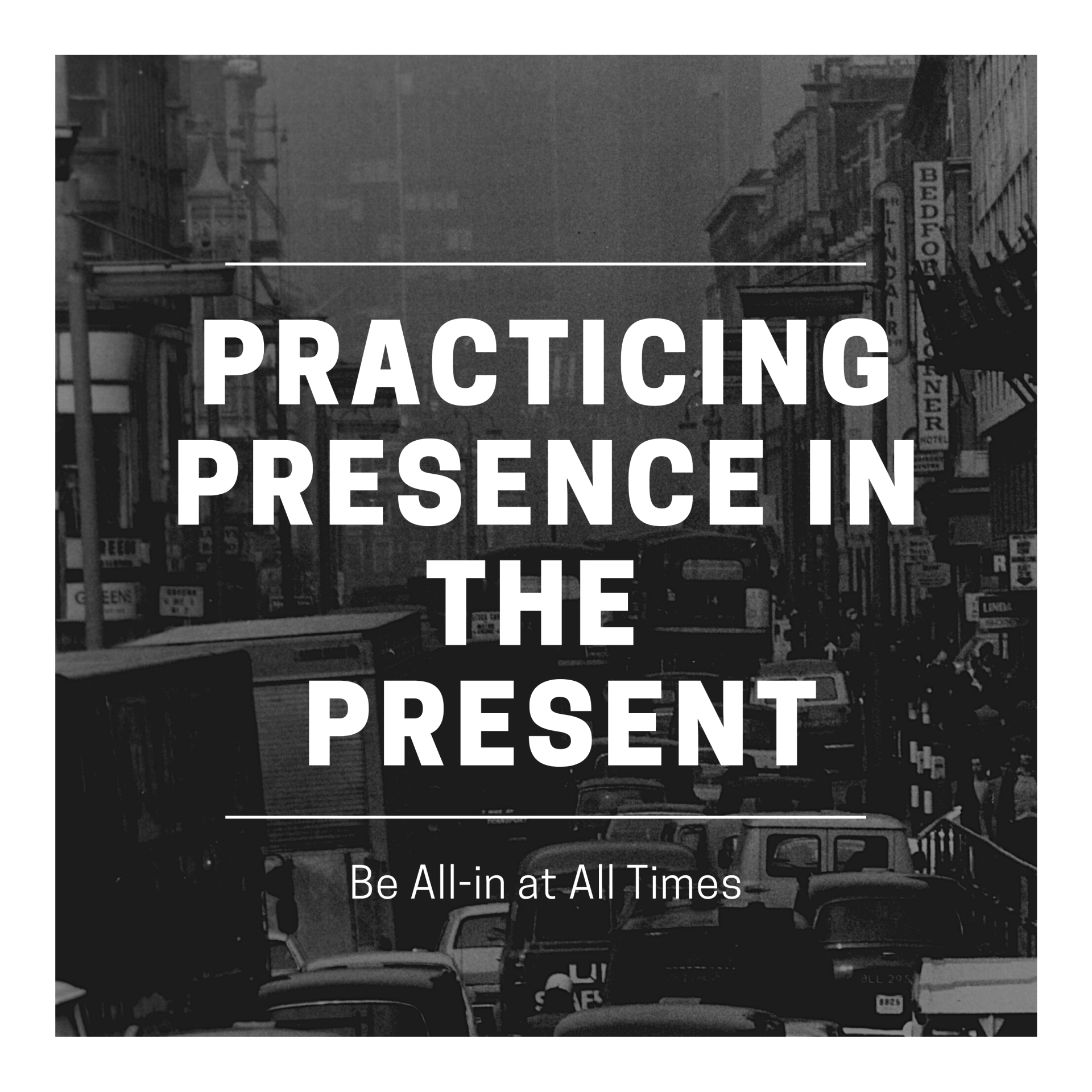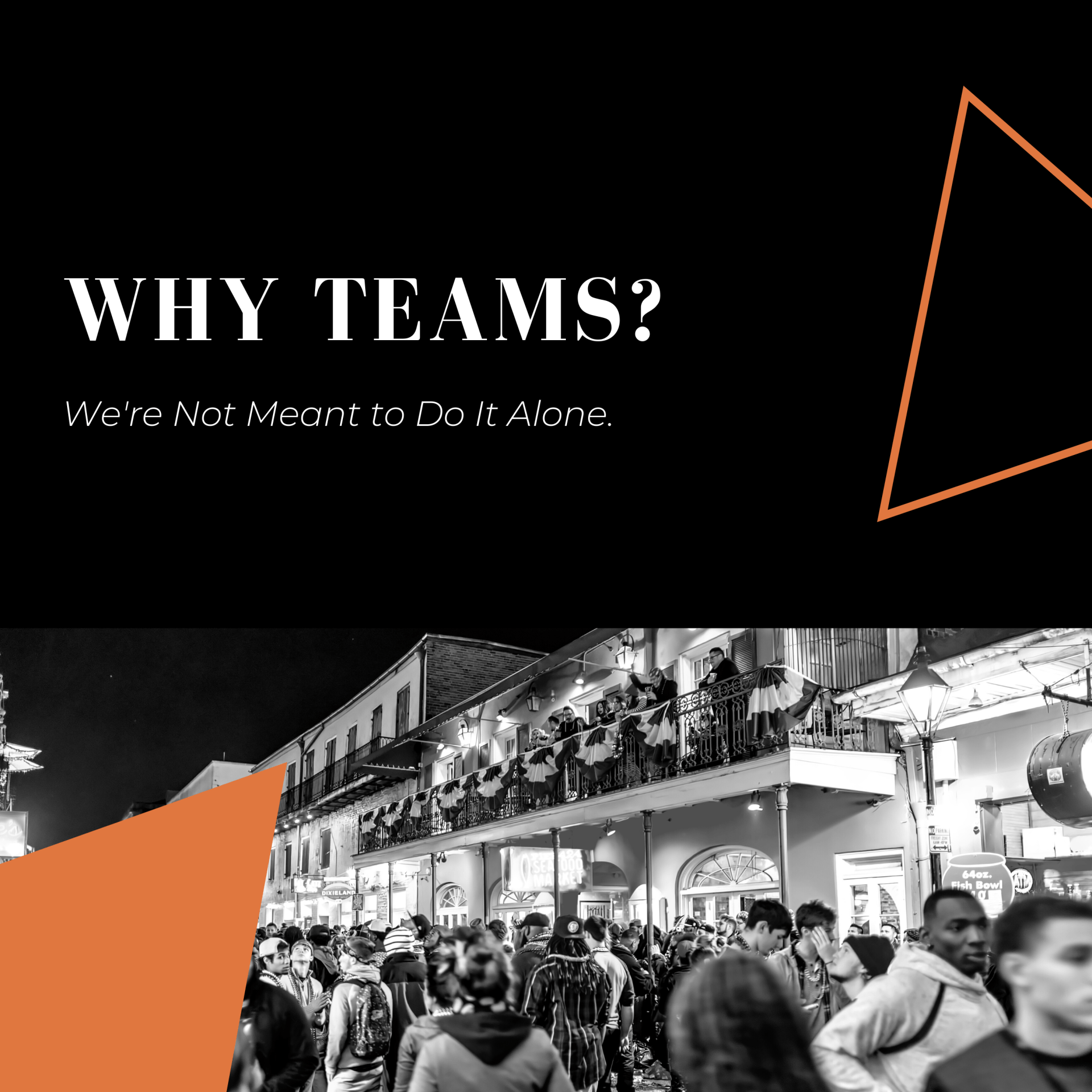By Isaac Kain
•
March 22, 2021
Let's face it, there's a lot that everyone is dealing with right now. Our personal and societal lives are turbulent and they extend into our professional and work lives. Because of this we are having some very difficult conversations and interactions in our professional and team environments which are both personal and systemic in nature. Some times these conversations go okay and sometimes they have a lasting effect of negative feelings and relational fissures that persist. Today, I'm going to give you five foundational elements your team must have in order to engage in healthy, honest, and effective difficult conversations. ________________________________________________________________________________________________________________________________________________________ A Little Background: I'm currently on two professional teams. One team I'm very open with and one team I am not as open with. My limited openness isn't because of the people or even because of a real conscious choice. There is a constraining reality that some of you may relate to. I only meet with them for a very short time every day and we always have more work to do than can get done in that short time so we don't have a lot of superfluous conversation. The other team I'm on is the opposite. We work hard but we have more time to accommodate for down-time and a lot of concerted effort working on our team health, communication patterns, and general team dynamics. Recently, we had a difficult conversation in the first team. It was a necessary conversation as we were talking about very important systemic issues that need to change within our bigger organization and how they play out in our specific experiences. We were all in agreement that they need to change but we were looking at the means of approach from different angles. This should have been okay but it was awkward to say the least. I left that conversation feeling nervous, isolated, and confused. I spent the rest of the day and evening replaying the 20min conversation in my head. Why was it so awkward and contentious? Why, if we're trying to move in the same direction, does it feel like we're at odds? Why can we have open conversations in some teams and not others? Was I respectful enough? Did I listen enough? Was I clear enough? And the questions kept coming. I began to think through what healthy teams need from their leader and organization (Trust, Compassion, Stability, and Hope - elements I commented on in another post ) and how that relates to all of the various facets of our teams and organizations. In order to have healthy and difficult conversations we need the same things. The team that I am more open with has these elements. It doesn't mean that we agree all of the time. In fact, we disagree often , but we still appreciate one another and are productive as a team. I would eve argue that disagreement is just as important as agreement in a healthy team because it challenges norms and previously held conceptions. Disagreement isn't inherently bad. It can be an engine for creation and learning. For these reasons we are all a lot more open with one another in my second team and are able to participate in some very difficult and healthy conversations. All of our organizations and teams are built upon people. People are diverse with diverse perspectives, talents, and goals. With all of the diversity there is beauty, like a glorious mosaic. In order to make the organization or team work well and for all of the people to mesh together in the best possible way, there needs to be space for each of their individual perspectives and functions to be present. Here are 5 foundational elements that must be present in order to have effective hard conversations, of both personal and global subjects, and thereby allow your team to be the best it can be. 1. Share Downtime When Possible Downtime is of utmost importance in teams. Downtime allows team members to be their authentic selves and share openly in conversation. Downtime can happen in both large and small amounts, but the key is to use your time wisely. In order for our teams to handle difficult conversations we need to be authentic. Each of us, even the most authentic, present multiple versions of ourselves. I behave very differently with my kids than I do with my colleagues. Sharing downtime, even if it's momentary, blends the different versions of ourselves so that our teammates get to know us in a fuller way. This is why military teams are so tight. When your team knows you, and knows that you are who you are presenting, it goes a long way into eliminating assumptions. When we don't operate in assumptions but in understanding, it eliminates all sorts of misconception and miscommunication. 2. Have Regular Open Conversations Sharing downtime, even if minimally, allows people to open up in conversation and talk casually. This will thereby bring in some natural pathways to both common and divergent perspectives. It also creates opportunities to practice hard or inquisitive questions in order to really get to know one another. Having these natural and sometimes less intensive pathways to discussions creates a stabilizing framework that will allow you to have more difficult and complex conversations. It may sound silly, but if I find common ground with a teammate about musical preferences or experiential backgrounds I'm building relational investments with them. These conversations also give the opportunity for places that I call "harbors of safety". These are moments when you realize that you don't share the same perspective but that you can still work together for a shared goal and with shared values. Harbors of safety are crucial to develop foundationally so that when the really big discussions and differences come you realize that you can still work together even if you're on different sides of a proverbial fence. This may sound as if I'm suggesting that you share all of your family vacations together with your working team. I'm not, although, if that works for you, that's cool. What I am suggesting, however, is that when we share downtime together we really get to know our teammates on a whole different level. Remember, our goal for healthy organizations and healthy teams is not single mindedness, but many parts working together to realize a common corporate vision. 3. Choose Your Words Carefully Wars have been waged over carelessly said and ill-timed words. Teams have also been destroyed because of them. Everyone has different levels of comfort and different styles of humor. Sometimes they overlap and sometimes they don't. For instance, my family (i.e. my extended family) tends to have what they call "dark humor". They deal with difficult situations by joking about them or being sarcastic. I certainly followed suit in my younger adulthood, but I quickly realized that this wasn't always received well by all of the teams I worked on. I needed to learn how to choose my words carefully. Just because I didn't intend to make anyone uncomfortable or offended, my intentions were secondary to the impact they made. This extends into all sorts of other spheres and topics in a conversation. Our tongue is a double-edged sword. It has the power to build, encourage, and unify. It also has the power to tear down, separate, and destroy and can do so independently from our intentions. Sometimes this happens intentionally and sometimes unintentionally. We need to mind our tongue and remember that sometimes making a point relies as heavily on our word choice and knowledge of the audience as it does about sentiment. 4. Be Patient and Slow to Frustration In as much as careless words have an impact, we as the receiver of those words have a responsibility as well. This concept is a bit more complicated in the present so let me be clear on what I mean. Sentiments of the "isms" (i.e. racism, sexism, et al) should never be tolerated. We all need to be united on this. With that said, we all still need to be a united team as well. Something that I learned a long time ago in the Army is the necessity of direct conversations. They can be uncomfortable sometimes, but they are imperative. In fact, this is what I'm writing about in this post. If we value our teammates, our team, and our organization then we also have a responsibility to them. Sometimes, that means that when we are offended by words that were said, we need to directly ask about the intended meaning and genuinely seek to understand and/or redirect the person. I'm not suggesting that we let things slide, but sometimes inarticulate utterances have unintended consequences that could be avoided through conversation. This prevents these unintentional utterances from creating problems. If these persist after the conversation, however, then this is a pattern and unhealthy patterns cannot be allowed in healthy teams. You, as a teammate, have a responsibility to both be careful of your words and mindful of your thoughts and emotions. You, as a leader, have a job to cultivate health and protect your people. In order to do both of these things, we need to be mindful of ourselves and those around us. And, not for nothing, if you do have to discipline someone for their words or behavior, it's always better to do it with a clear head rather than volatile emotions. 5. Let Things Go When my wife and I were wedding photographers we heard a lot of advice dolled out to the brides and grooms. Some of it was good and some of it went right into the " Did they really just say that ?" category. One of the most common pieces of advice we heard was, "Don't go to bed angry". I think a lot of people take this a bit too literally and maybe push too hard to resolve really hard things too quickly. Hard things and big offenses can take work to resolve. However, the sentiment behind this advice is sound. At all points, if we care about our team, our shared vision, and our teammates, we need to push against bitterness as much as possible. Bitterness generally occurs in one of two instances. The first is when our unmet expectations or offences are not addressed and then fester. The second is when we continue to perseverate after the situation is resolved. The first way bitterness grows was addressed, at least in part, in the previous four foundational elements. The second, is in the skill of letting things go. When things have been addressed and they have been resolved, it's extremely unhelpful for a team to continue to fixate on them. Life is still messy and we don't always get the resolutions we want but if we've had Focusing on mistakes only breeds conflict and bitterness. Don't take the difficult conversations to mean that there is a difficulty in collaboration. The reality is that this list is only part and parcel of how a healthy team communicates or what the foundations for healthy team communication are. However, a healthy team needs to have these things in place in order to be able to withstand the necessary hard conversations that come in our organizations and teams and then move on into healthy collaboration. After this post, I am now convicted to bring these elements to both of my teams because they are both of equal importance. If you have any other thoughts, comments or ideas please share them.









